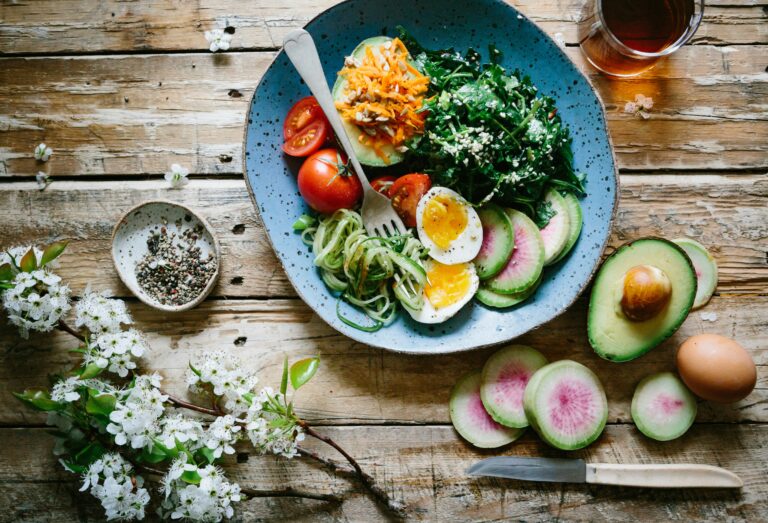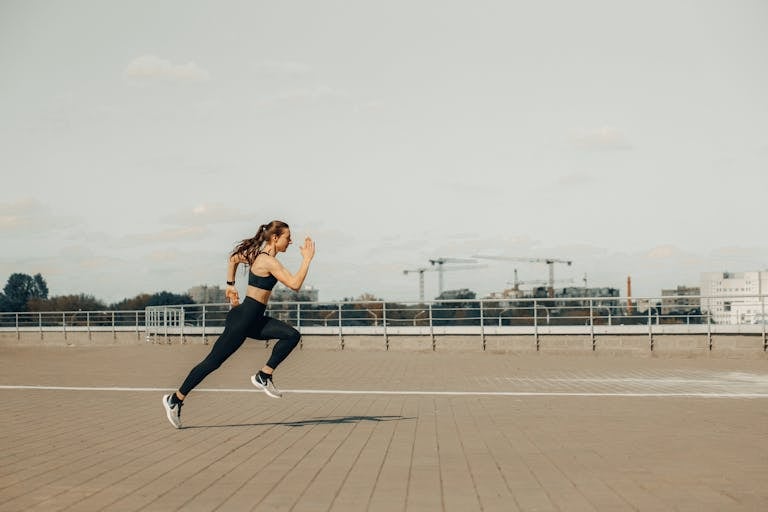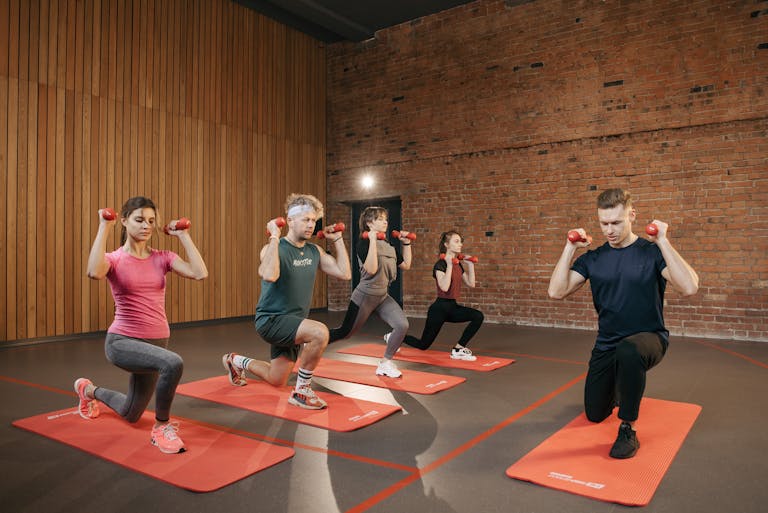Getting the most out of your workouts isn’t just about showing up at the gym. Proper workout nutrition can make or break your fitness goals, with studies showing that timing your meals can improve performance by up to 25%. Yet many people struggle with the basics: What should I eat before exercising? When should I have my post-workout meal? How do I avoid that sluggish feeling during my workout?
Research shows that the right combination of nutrients and timing can boost muscle recovery and growth, so here’s an evidence-based guide for your nutrition strategy.
The confusion around pre- and post-workout nutrition is understandable. Conflicting advice floods social media, and what works for one person might leave another feeling bloated or exhausted. The truth is that strategic meal timing can give you energy, enhance recovery, and maximize results.
This guide will cover the science behind workout nutrition, food recommendations, timing strategies, and meal ideas for both pre- and post-workout. By the end, you’ll have a clear roadmap to fuel your fitness journey.
Why Workout Nutrition Matters for Your Performance
Food is fuel for your muscles, and it directly affects your energy levels during exercise. When you eat the right foods at the right times, your body can perform at its best. When you don’t, you might feel fatigued, experience poor performance, and experience slower recovery.
Sports nutrition is a field dedicated to optimizing athletic performance and recovery through strategic dietary practices. Each macronutrient has a specific role in workout performance. Carbohydrates provide immediate energy for high-intensity activities. Protein prevents muscle breakdown during exercise and supports recovery after. Fats provide sustained energy for longer, moderate-intensity workouts.
Research shows that proper nutrition and timing can improve workout effectiveness significantly. Athletes who follow a structured meal timing protocol report better endurance, stronger lifts, and faster recovery times than those who eat randomly around their training sessions. Eating the right nutrients at the right times is key to optimal recovery, muscle repair, and exercise performance.
Poor nutrition choices can sabotage your efforts and negatively impact exercise performance. Exercising on an empty stomach can lead to muscle loss, and eating too close to your workout can cause digestive discomfort. Skipping post-workout nutrition altogether can slow recovery and limit muscle growth.
Pre-Workout Nutrition: Set Yourself Up for Success
What Your Body Needs Before Exercise
Your pre-workout meal should focus on easily digestible carbohydrates. These provide the quick energy your muscles need for high-intensity activities. Carbohydrate needs before exercise can be adjusted based on your body weight and body size to ensure optimal energy. Think of carbs as the premium fuel that helps your engine run smoothly.
Moderate protein intake before exercise prevents muscle breakdown during your workout. You don’t need a lot, but some protein can support your muscles throughout your training session. You need enough energy to support physical activity and prevent fatigue.
Limit fats and fiber before workouts to avoid digestive issues. Both are important for overall health, but take more energy to digest and can cause discomfort during exercise.
Best Pre-Workout Foods for Maximum Energy
Choose easily digestible carbohydrate sources that won’t weigh you down. Bananas are great because they provide natural sugars and potassium. Oats offer sustained energy release, and rice cakes provide quick fuel without heaviness. Dates are nature’s energy bars, packed with simple carbs.
Low-fat chocolate milk is also a convenient pre-workout drink, with both carbs and protein to fuel your workout.
For lean protein options, Greek yogurt provides protein and probiotics. Eggs are versatile and easily digestible. Protein smoothies blend quickly and absorb fast. You can also choose low-fat yogurt, low-fat milk or string cheese as additional sources of protein and carbs.
Some winning combinations include a banana with a tablespoon of almond butter or nut butter, oatmeal with berries or nut butter, or a small smoothie with protein powder, fruit, and nut butter. These options provide balanced energy without causing digestive stress.
A banana or dates can also be a last-minute snack and a good snack for quick energy before a workout.
Timing Your Pre-Workout Meals
Follow the 3-4 hour rule for bigger meals. This gives your body time to digest and convert food into usable energy. If you have a big breakfast before an afternoon workout, this timing works perfectly. Choosing the right pre-workout snack can also keep blood sugar levels stable and prevent energy crashes during exercise.
For smaller snacks, aim for the 30-60 minute window before exercise. This provides quick energy without sitting heavily in your stomach. A piece of fruit or a small energy bar fits this timeline well. Don’t forget about hydration.
Drink water throughout the day and 16-20 ounces 2-3 hours before exercise. Add another 8 ounces 15-30 minutes before your workout. If you’re doing prolonged exercise, a sports drink or sports drinks can be beneficial to maintain hydration, replenish electrolytes, and provide carbohydrates to support energy and muscle function.
Post-Workout Recovery: Refuel for Results
The Recovery Window
The 30-60 minute window after exercise, often called the “post exercise window,” is the optimal time for nutrient absorption. During this time, your muscles are primed to absorb nutrients efficiently, supporting faster recovery and better results. However, nutrient absorption and muscle recovery can remain effective for several hours after exercise, so the window for refueling is broader than commonly believed.
Post-workout meals serve two main purposes: muscle repair and glycogen replenishment. Consuming carbohydrates and protein during the post-exercise window helps replenish muscle glycogen and glycogen stores, which is essential for rapid recovery and preparing your body for future workouts. Your muscles need protein to rebuild stronger than before, and your energy stores need carbohydrates to refill.
Muscle protein synthesis, the process of building new muscle tissue, peaks during the hours after exercise and plays a crucial role in helping to rebuild muscle tissue. Providing your body with quality protein during this time supports this natural process.
You need to replenish glycogen through post-workout nutrition to optimize recovery and performance.
Best Post-Workout Meals for Faster Recovery
The ideal protein-to-carbohydrate ratio depends on your workout type. For endurance activities, aim for a 1:3 or 1:4 ratio (protein to carbs). For strength training, resistance exercise, intense exercise, strenuous exercise, or lifting weights, a 1:1 ratio works well to help build muscle and support recovery.
High-quality protein sources include lean chicken, skinless chicken breast, fish, eggs, protein powder, and quinoa. These provide all the essential amino acids your muscles need for repair and growth.
Complex carbohydrates like sweet potatoes, brown rice, whole grain bread, and whole wheat toast help replenish energy stores effectively. These foods provide sustained energy release and important nutrients.
Include healthy fats like those found in salmon, nuts, seeds, and oils in your post-workout meals to support recovery, nutrient absorption, and reduce inflammation. Include anti-inflammatory foods like berries and leafy greens to reduce exercise-induced inflammation and support recovery. Eating certain foods, especially those rich in antioxidants and anti-inflammatory compounds, can further enhance muscle repair and athletic performance.
If you can’t meet your nutritional needs through food alone, dietary supplements may be considered to support recovery and performance.
Quick Post-Workout Meals
Here are 7 easy combinations with minimal prep time:
- Low-fat chocolate milk and a banana (2 minutes): Classic recovery drink with perfect carb-protein ratio; bananas are rich in potassium to prevent muscle cramps after exercise.
- Greek yogurt with berries and granola (3 minutes): Protein-rich with natural sugars
- Tuna salad on whole grain crackers (5 minutes): Lean protein with complex carbs
- Protein smoothie with spinach, fruit, and nut butter (3 minutes): Nutrient-dense, easy to digest, and supports muscle recovery
- Hard-boiled eggs with toast and nut butter (2 minutes if prepped): Complete protein with quick carbs and healthy fats
- String cheese and trail mix (2 minutes): String cheese is a convenient low-fat protein source; trail mix is a good snack for post-workout recovery, providing energy and nutrients
- Cottage cheese with pineapple (1 minute): High protein with natural sugars for glycogen; swap for low-fat cottage cheese for a healthier option
For different dietary preferences, try these swaps:
- Vegan: Plant-based protein powder, hemp seeds, or tofu
- Gluten-free: Rice cakes, quinoa, or sweet potatoes instead of bread
- Dairy-free: Coconut yogurt or almond milk in smoothies
You can also have a glass of low-fat milk or a low-fat latte as a quick source of protein and calcium to support muscle recovery and energy after workouts.
Meal prep supports consistency. Cook proteins in batches, pre-cut vegetables, and portion snacks on weekends to grab quickly after workouts.
Common Workout Nutrition Mistakes to Avoid
Proper nutrition is key to maximizing your workouts and achieving your fitness goals. However, certain common mistakes can hold you back or even harm your progress. Poor nutrition can slow down exercise metabolism and performance. Here are some workout nutrition pitfalls to avoid:
- Exercising on an empty stomach: While fasted cardio has some benefits, it can lead to muscle breakdown during intense workouts as your body may use muscle tissue for fuel when carbs aren’t available.
- Eating heavy meals too close to workouts: Having a big meal before exercising can cause cramping, nausea, and digestive discomfort as your body diverts blood flow to digestion instead of your muscles. Certain foods, especially greasy or high-fiber foods, can also cause an upset stomach and should be avoided before exercise.
- Skipping post-workout nutrition: Not eating after a workout misses the chance to repair muscles and replenish energy, which can negatively affect your performance in your next workout.
- Skipping meals to lose weight: Under-eating can slow down your metabolism, cause muscle loss, and make it harder to reach your weight loss or fitness goals.
- Not staying hydrated: Dehydration can cause fatigue, dizziness, and reduced performance during workouts, so make sure to drink water before, during, and after exercise. Monitor weight loss during exercise to guide fluid replacement. After intense or prolonged exercise, consider using sports drinks to replenish electrolytes and support recovery.
- Overdoing caffeine before workouts: While caffeine can give you energy, having too much before exercise can cause jitters, increased heart rate, and even dehydration.
Sample Meal Timing Schedules
Early Morning Workouts (6 AM)
- 5:15 AM: Small snack like a banana or a few dates
- 7:00 AM: Full post-workout meal with protein and carbs
- Example: Scrambled eggs with toast and fruit
Lunch Break Fitness (12 PM)
- 10:00 AM: Light snack with protein and carbs
- 1:00 PM: Post-workout meal replacement shake
- Example: Greek yogurt with berries before, protein smoothie after
Evening Workouts (6 PM)
- 4:00 PM: Pre-workout snack to bridge lunch and exercise
- 7:30 PM: Post-workout dinner
- Example: Apple with almond butter before, grilled chicken with sweet potato after
Adjust these timing schedules based on your personal schedule and digestion patterns. Some people need more time between eating and exercising, while others can eat closer to workout time.
Smart Nutrition for Fitness
Pre and post-workout nutrition serve different but equally important purposes. Before exercise, focus on easily digestible carbs for immediate energy. After exercise, prioritize protein for muscle repair and carbs for energy replenishment.
Consistency is key as much as consistency in exercise. You can’t out-train a poor diet, but you also can’t optimize performance without proper fuel. Both work together to help you reach your fitness goals.
Start by trying out different foods and timing to see what works for your body. Keep a simple food log and note how different meals affect your energy and performance. This will be your guide for future choices.
Track your nutrition along with your fitness progress using apps or journals. Many people focus only on exercise metrics and ignore the fuel that powers their workouts.
Join the Get Healthy Squad community for ongoing support, recipe sharing, and accountability. Connect with others who understand the journey and can motivate you when you need it.
Medical Disclaimer:
This content is for informational purposes only and is not intended as medical advice, diagnosis, or treatment. Always consult with a qualified healthcare professional before making any changes to your diet, exercise, or health routine. Never disregard professional medical advice or delay seeking it because of something you have read on this site.







